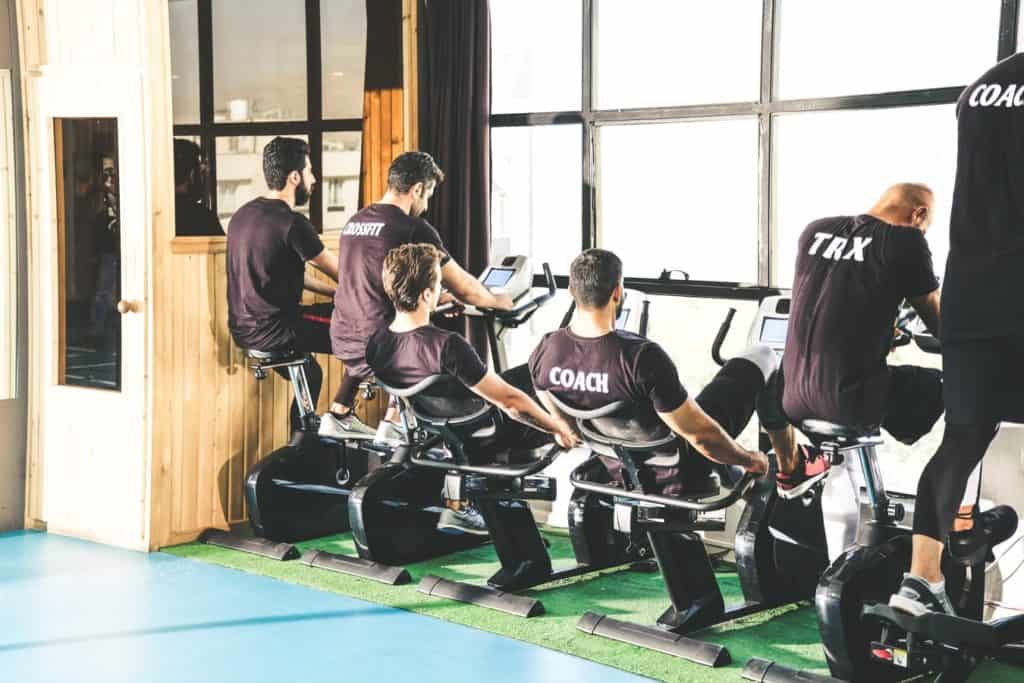Friendship can be a difficult business, especially as the years roll on. The bonds we formed in our younger years, in school and/or university, can wear thin into adulthood. People who once lived down the road are now in a different city, or perhaps even a different country; busy working lives, new partners and children pose significant obstacles to finding time for one another; shared interests of years gone by may wither away with time.
Worse yet, there are those of us who never enjoyed such friendships to begin with; those who spent their childhood and adolescence as the proverbial Billy-No-Mates, and have inevitably followed much the same path as a grown-up. It’s not a pretty picture, but it’s a sad reality for many – and the older we get, the harder it seems to be to break out of this cage of solitude and find friends.

Even before social isolation became a legally imposed necessity in the face of a global pandemic, there were already grave concerns about loneliness as an increasing problem, with millions admitting to feeling lonely on a regular basis. We might like to think that social media would serve all our social needs, but this can often cause more problems than it solves, and can never fully take the place of real, human interaction.
Statistically, lonely people live shorter lives
For those of us who find ourselves over 30 and to all intents and purposes friendless, it can be hard not to feel like a lost cause. Yet to try to disregard feelings of loneliness is not only to the detriment of your mental health – it could have very real physical risks too: as unlikely as it might seem, studies have shown that those without strong social bonds are 50% more likely to meet a premature death.

While some degree of solitude is fine, humans are by nature social animals, and it’s simply not good for us to spend no time with others in a casual, non-work-based context. Finding new friends as an adult may be daunting, but it’s by no means impossible; and while it mean forcing yourself out of your comfort zone, that isn’t necessarily a bad thing. These are some things to consider when looking for new friends once you’re over 30.
Embrace your interests – or seek out new ones
The self-deprecating cynics among us will remember the old joke, “I would never want to join any club that would have someone like me as a member.” However, if you can find some sort of club, society or evening class that centres on something you’re enthusiastic about, chances are you’ll end up rubbing shoulders with some like-minded people.
Of course, seeking out new friends might also necessitate trying out something new. Consider a beginner’s course in an art or craft, join a gym or look into playing a sport or game you’ve always secretly fancied trying your hand at. You might feel like the weird newbie, but it’s almost certain you won’t be the only one.

Just being in the same room as new people with minimal direct interaction is a start. According to one study, two strangers can become casual friends after spending 50 hours together; this can progress to full-grown friendship in 90 hours, and close friendship within 200. If you’re doing a new activity for two to six hours a week – you do the math.
A higher number of friends doesn’t necessarily equal true friendship
Another old adage that rings true is that we should always value quality over quantity. Plenty of us have dozens, even hundreds of ‘friends’ on Facebook, but how many of those translate to genuine, rewarding relationships? Likewise, there might be any number of people you’re on a first name basis with in face-to-face social scenarios, but that doesn’t always mean you have a real connection.
Psychologist Lauren Napolitano argues that finding friends isn’t too far removed from dating. Previous bad experiences might keep you from trying again for fear of further rejection, but you shouldn’t let this deter you.

And, not unlike any fledgling relationship, it’s important that you keep your expectations in check. Just as it’s unrealistic to think you’ll find love after one date, you won’t find a best friend after grabbing one coffee together. But if you work to keep that initial spark alive, who knows with time?
Recognise the value in yourself
As RuPaul has told us time and again, if you can’t love yourself, how are you going to love somebody else? It’s sadly common that those who are low on friends come to believe that they don’t deserve them, and such people may (consciously or unconsciously) self-sabotage any potential friendship before it has had a chance to blossom.
To avoid this, always remember when talking with a new potential friend to accentuate the positive. A little sarcasm and self-deprecation is fine within reason, but don’t go overboard with listing your worst flaws and unloading all your emotional baggage. Nothing is more certain to leave you friendless than constantly being a downer. If you’ve got nothing but bad things to say about yourself and your life, that’s invariably going to taint how others see you.

Psychologist Linda Blair advises, “Think about what you like about yourself. When you’re comfortable with yourself, it shines out of you.” And of course, it’s not all about you anyway: friendships are reciprocal. As Blair advises, “ask people about themselves and listen sincerely when they answer. A good listener is rare these days.”
Oftentimes, the reason we can’t find peace with others is that we’re not entirely at peace with ourselves. We may be on the lookout for the emotional support that friendship brings, but in the meantime we may need to keep our emotions in check. Try not to dwell or take it too personally if someone you thought you had a connection with doesn’t call to meet up again; sometimes people just don’t hit it off, and even if they do life has a habit of getting in the way. Don’t let this keep you from trying, and above all don’t let it deceive you into thinking you are without value as a person. Recognise your own worth, and with a little time and a little effort, others are bound to recognise it too.

